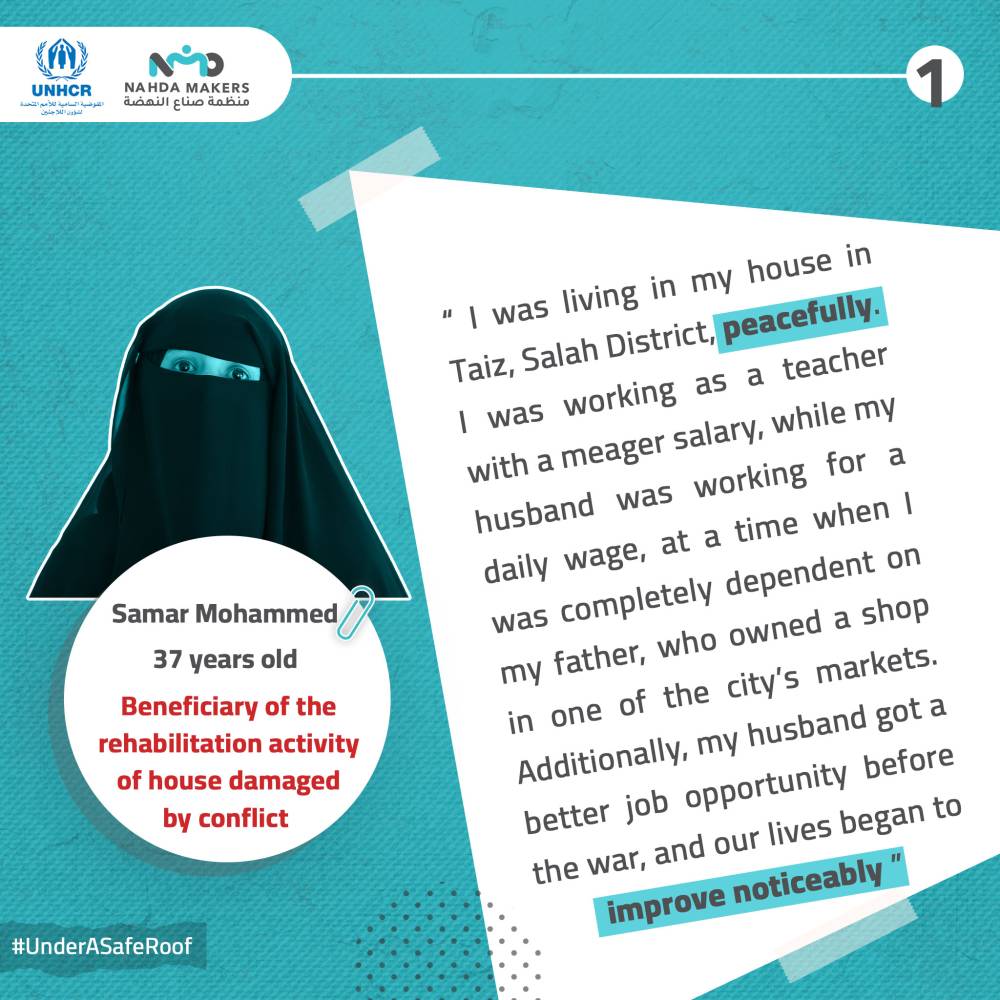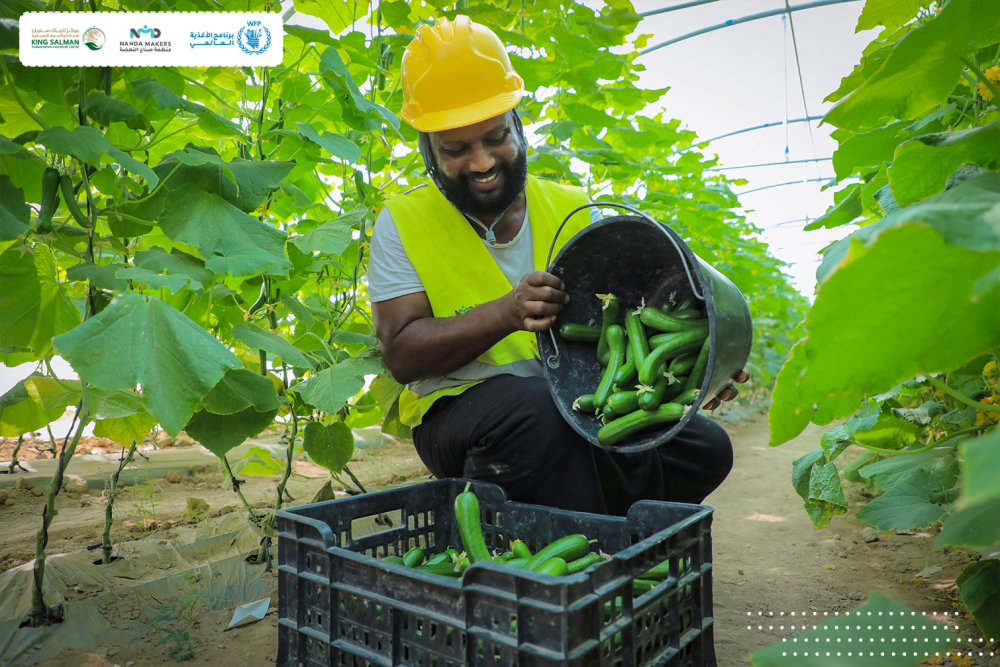The conflict and instability that Yemen has been witnessing make the struggle for a decent life one of the greatest challenges a person may face. However, its difficulty increases exponentially when it comes to women.
Samar is one of the Yemeni women who have suffered the brunt of the war. Like many Yemenis, her life has changed tragically since the outbreak of the war.
The story of Samer, a 37-year-old woman, begins in the city of Taiz, in the Salalah district. Samer, along with her two children and husband, lived a quiet life in their home. Her parents resided on the upper floor of the same house.
Samar told us about her life before the war, saying:
"I used to work as a teacher in private schools with a meager salary, while my husband worked on a daily wage. At that time, we were completely dependent on my father, who owned a shop in one of the city's markets. After that, my husband got a better job opportunity, and our lives began to improve noticeably," … Samar adds …
"But this happiness that overwhelmed us did not last long. The war engulfed our city. And while we did not imagine that it would last for so long or be so brutal, we left our city with nothing but a few bags and a lot of disappointment," …
she continued ...
"The war lasted for years, and the area we lived in became a front line. We started our displacement journey to Al-Abous area, Haifan district, and just a few days later, we received pictures of our burned-down house!
Our suffering did not stop there. A few weeks later, the conflict reached the area where we were staying, and this time we were displaced to the city of Ibb, where misfortunes befallen us one after the other, from the difficulty of paying rent at a time when we did not have any source of income, to the death of my mother from cancer, while my father suffered from Alzheimer's despite his young age, and my brother suffered from many psychological problems. At that point, we could not stay there any longer, and my husband and I decided to return to our city after the situation had stabilized.
When we visited our house and saw it for the first time after the war, despair crept into our hearts. It was like a terrifying nightmare. We had completely lost hope of the possibility of rebuilding it or living in it again, as the extent of the damage caused by the war was unimaginable.
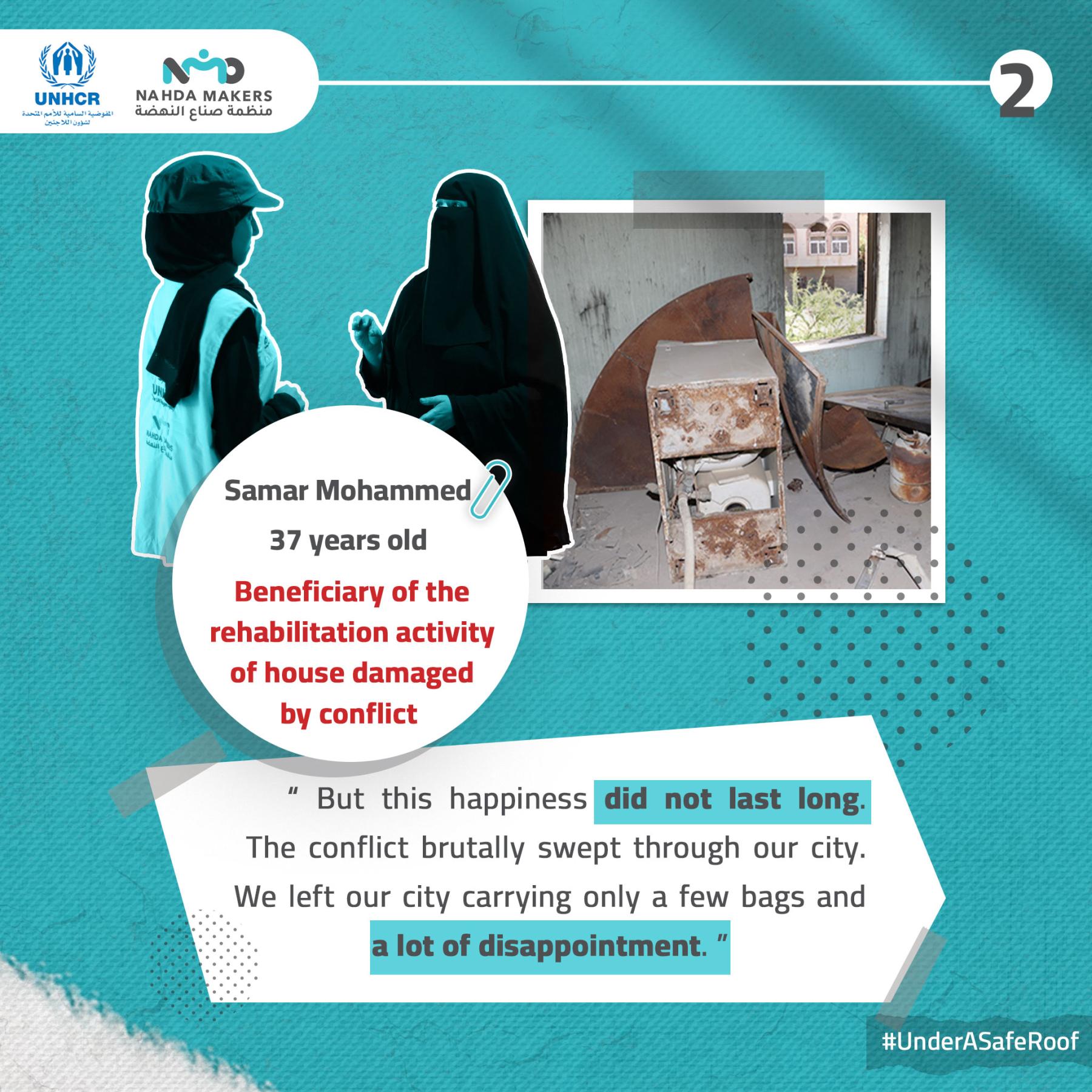

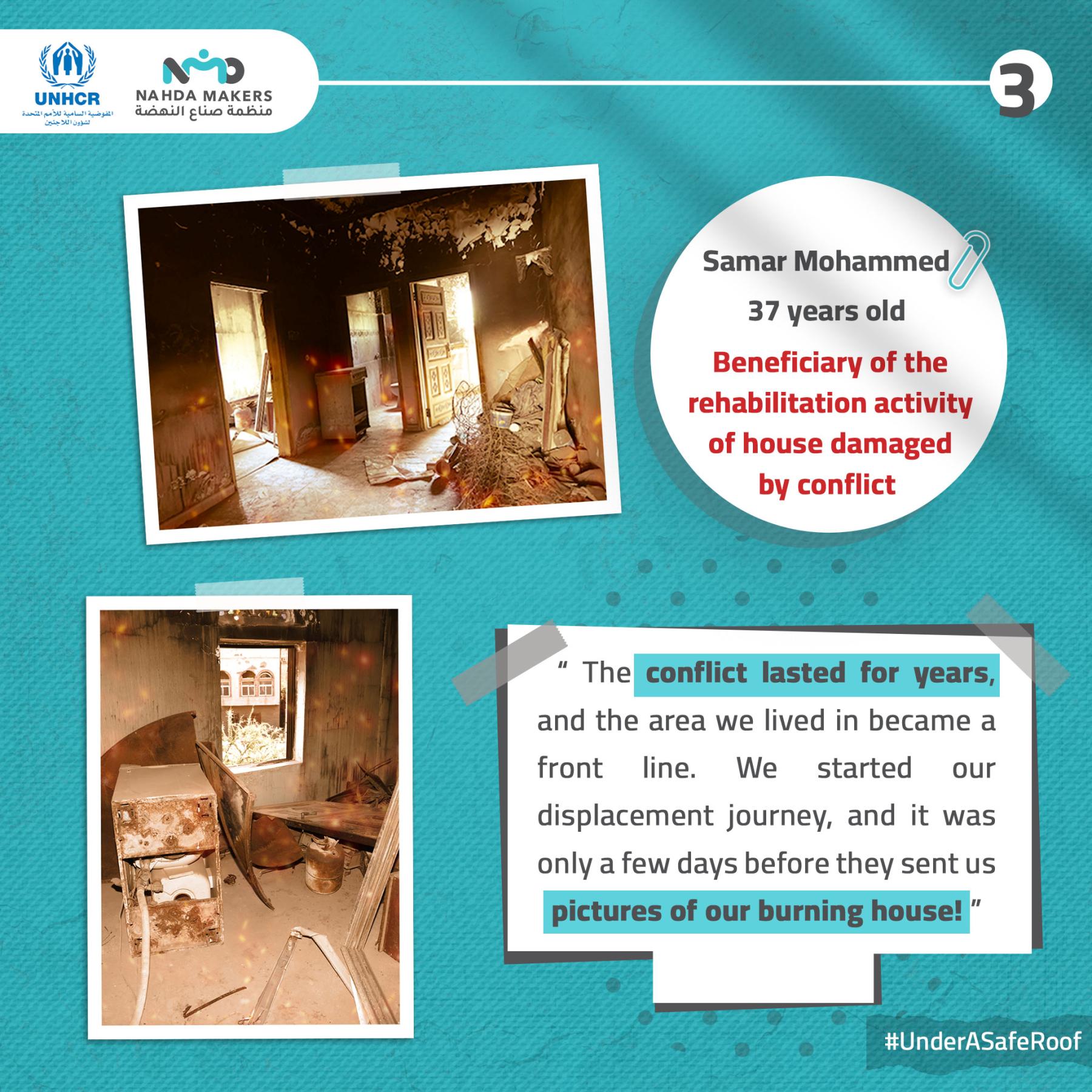
At this stage in our life, and while despair had taken hold of us, and we were living in a house in AL-markazi area, we heard that the Nahda Makers Organization (#NMO), with funding from the United Nations High Commissioner for Refugees (#UNHCR), had started a project to rehabilitate houses affected by the war. We tried at the time to submit the required documents, but unfortunately, ours were not complete. However, we were later grateful for that fate, because we were later targeted in the second batch with a larger amount of cash than before, which contributed to the complete restoration of the house.
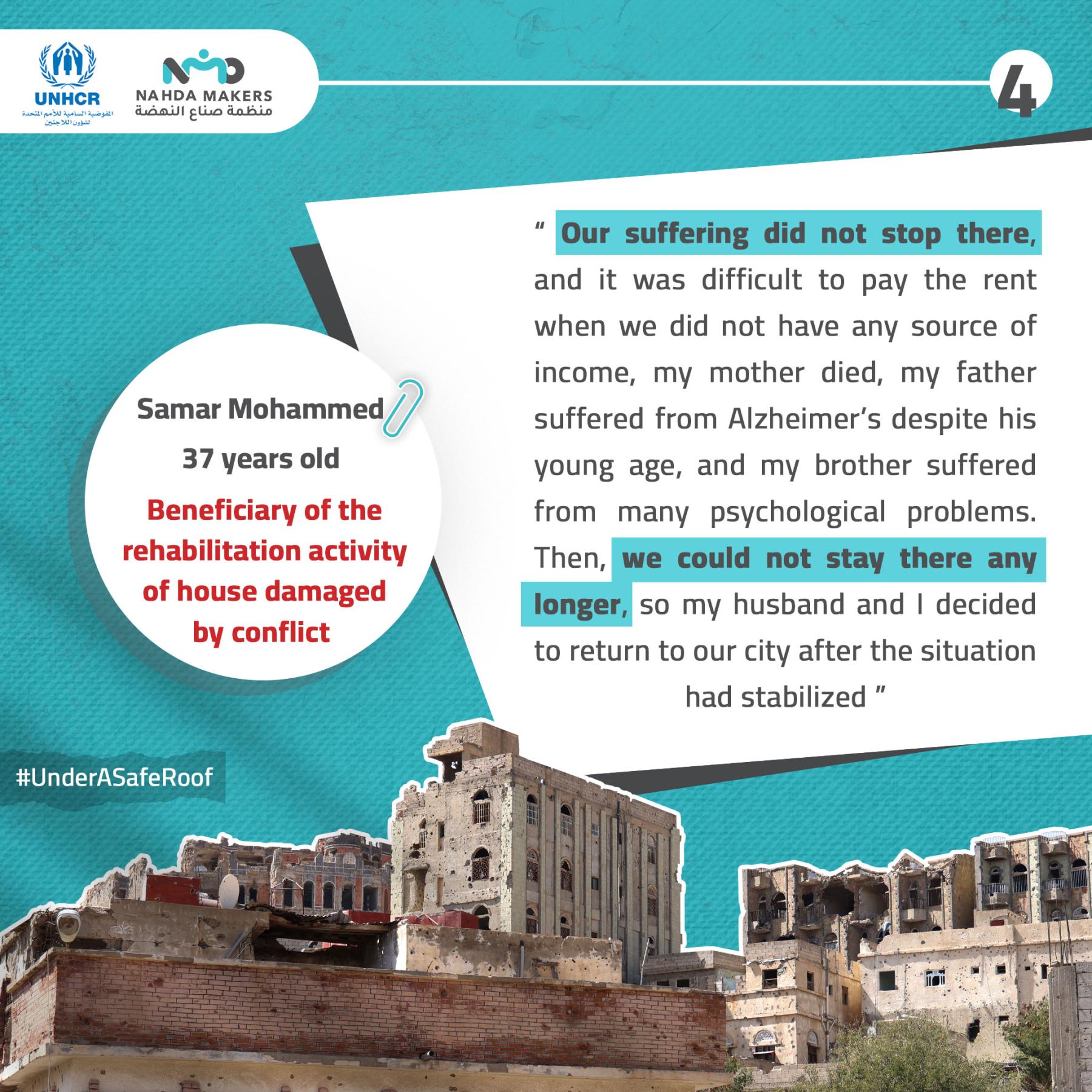
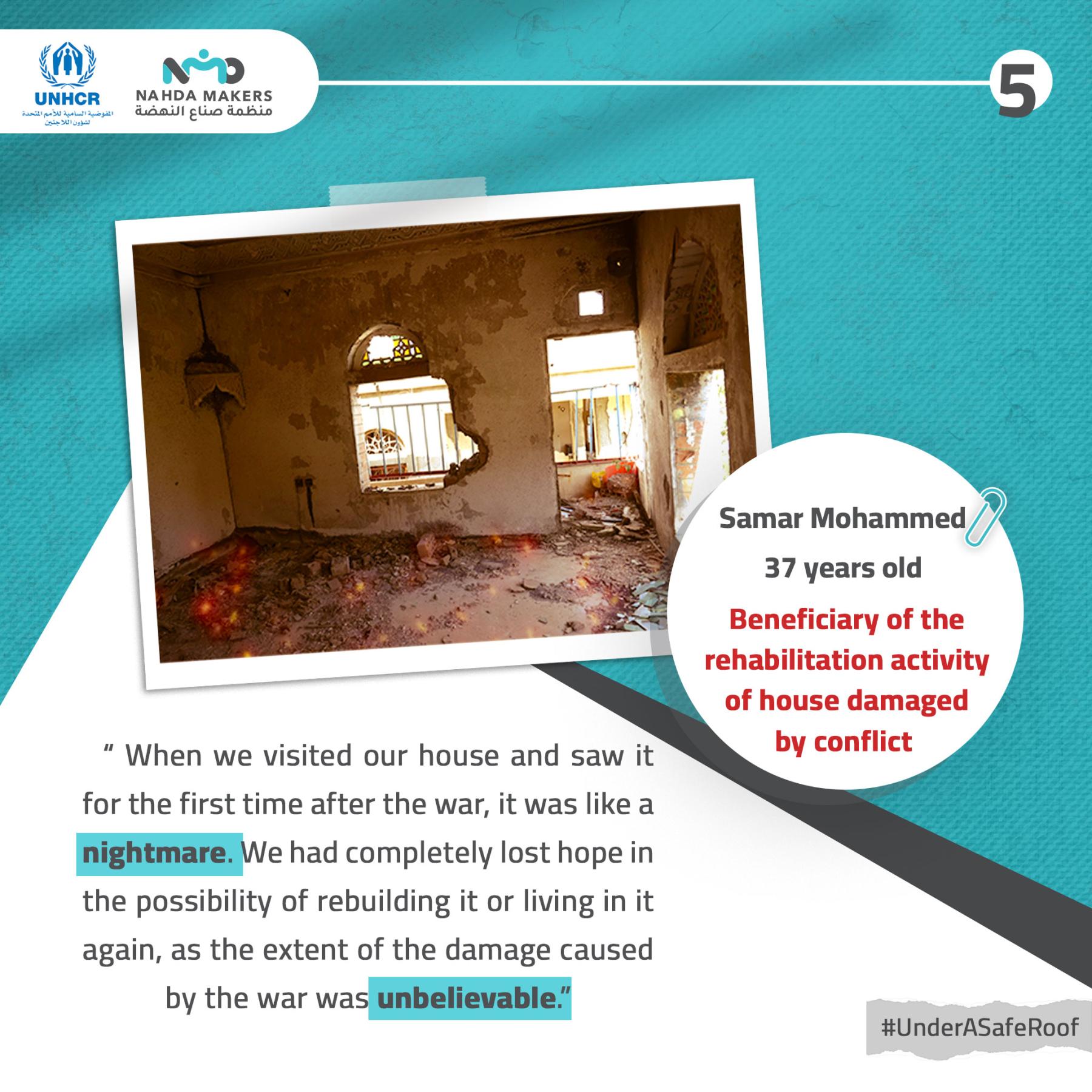
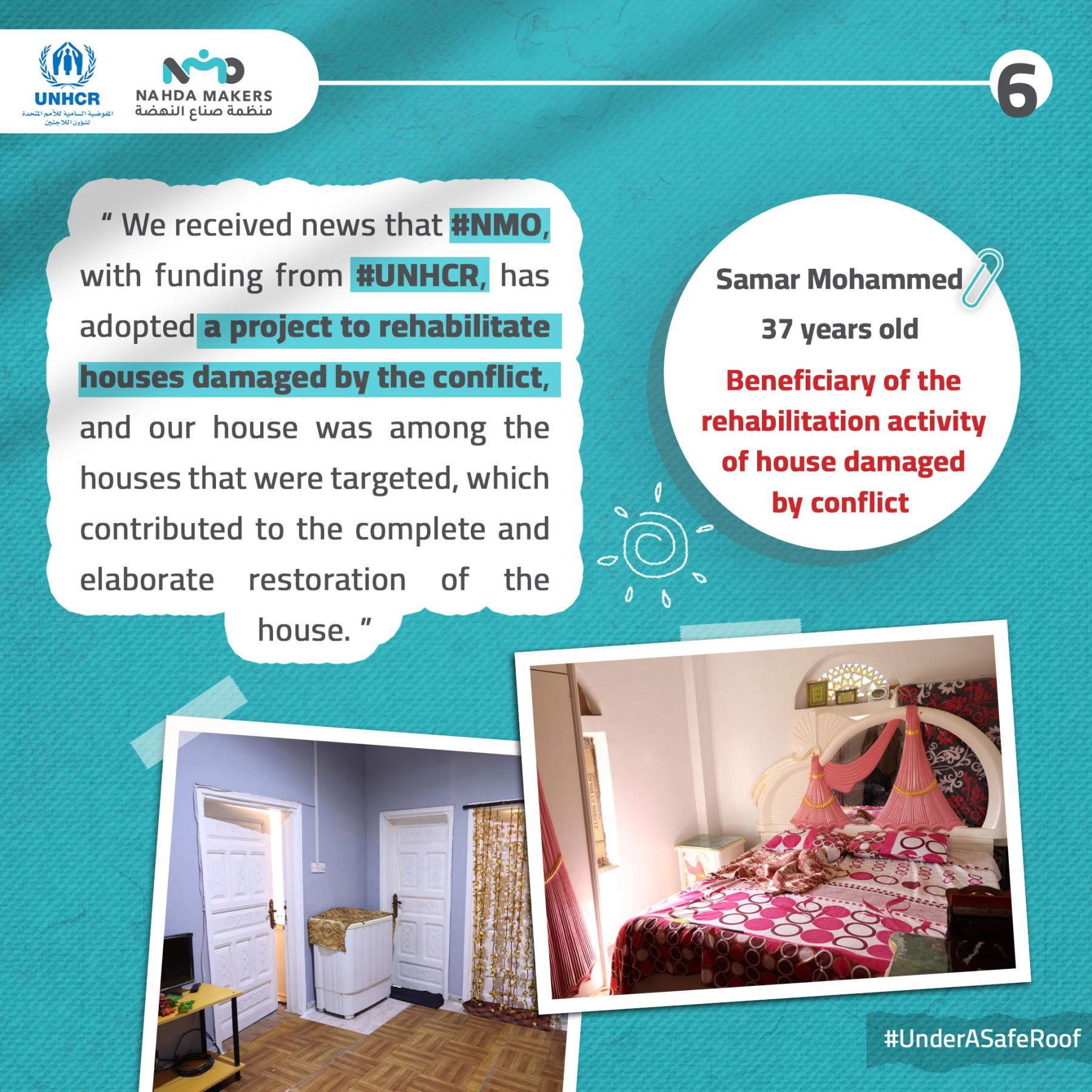
… Samar concludes her story by saying: …
"I never imagined that our house would return to its previous state. It was a fantasy. But despite the impossibility of it, it happened in the end. I would like to express my gratitude to you, and everyone involved in this project.
You have healed our hearts and many others after the war broke them."
